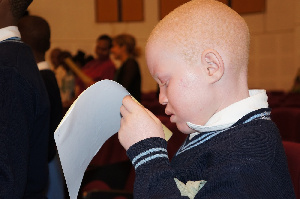Besides, Tanzania has also made a declaration recognising the competence of the Court to receive cases from non-governmental organisations (NGOs) and from individuals. According to the Court’s summary, Tanzania is one of eight countries among 30 states that have ratified the protocol and also declared the court’s competence in recognising cases from NGOs and individuals. The other countries are Benin, Burkina Faso, Ivory Coast, Ghana, Mali, Malawi and Republic of Tunisia.
Almost all EAC countries, except South Sudan which joined the Community recently, have ratified the Protocol; but only Tanzania, has gone ‘the extra mile’ by recognising the Court’s competence to receive cases from individuals and NGOs.
Other EAC countries that have ratified the Protocol are Kenya, Uganda, Rwanda and Burundi. Earlier, Rwandahad also made a declaration to recognise the Court’s competence to receive cases from NGOs and individuals, but soon withdrew for undisclosed reasons. The African Court on Human and People’s Rights is a continental court established by African countries to ensure the protection of human and peoples’ rights in Africa.
It complements and reinforces the functions of the African Commission on Human and Peoples’ Rights. Out of 54 African nations, only 30 countries have ratified the Protocol. These are Algeria, Benin, Burkina Faso, Burundi, Cameroon, Chad, Ivory Coast, Comoros, Congo, Gabon, Gambia, Ghana, Kenya, Libya, Lesotho, Mali, Malawi, Mozambique, Mauritania, Mauritius, Nigeria, Niger and Rwanda.
The rest are Sahrawi Arab Democratic Republic, South Africa, Senegal, Tanzania, Togo, Tunisia and Uganda. As at February 2018, only eight of the 30 states parties to the Protocol had made the declaration recognising the competence of the Court to receive cases from NGOs and individuals. States that have not ratified the Protocol are Egypt, Sudan, Eritrea, Ethiopia, Somali, Southern Sudan, Central African Republic, Democratic Republic of Congo, Angola, Zambia, Zimbabwe, Namibia, Liberia, Botswana, Swaziland, Madagascar, Equatorial Guinea, Guinea, Guinea Bissau, Sierra Leon and Morocco.
The Court was established by virtue of Article 1 of the Protocol, which was adopted by Member States of the then Organisation of African Unity (OAU) in Ouagadougou, Burkina Faso, in June 1998.
The Protocol came into force on January 25, 2004. It is stated that the Court has jurisdiction over all cases and disputes submitted to it concerning the interpretation and application of the African Charter on Human and People’s Rights, the Protocol and any other relevant human rights instrument ratified by the States. Specifically, the Court has two types of jurisdiction of contentious and advisory.
The Court may receive cases filed by the African Commission of Human and Peoples’ Rights, State parties to the Protocol or African Intergovernmental Organisations. Non-Governmental Organisations with observer status before the African Commission and individuals can also institute cases directly before the Court as long as the state they are complaining against has deposited the declaration recognising court’s jurisdiction to accept cases from individuals and NGOs.
The Court officially started its operations in Addis Ababa, Ethiopia in November 2006, and in August 2007 it moved to its seat in Arusha, the United Republic of Tanzania. The Court delivered its first judgment in 2009.
As at October 2017, the Court had received 155 applications. Applications from individuals were 141, while those from Non-Governmental Organisations were 11 and three applications came from the Commission. It is indicated in the summary that 31 applications have been determined, four have been transferred to Banjul Commission and 120 are still pending

